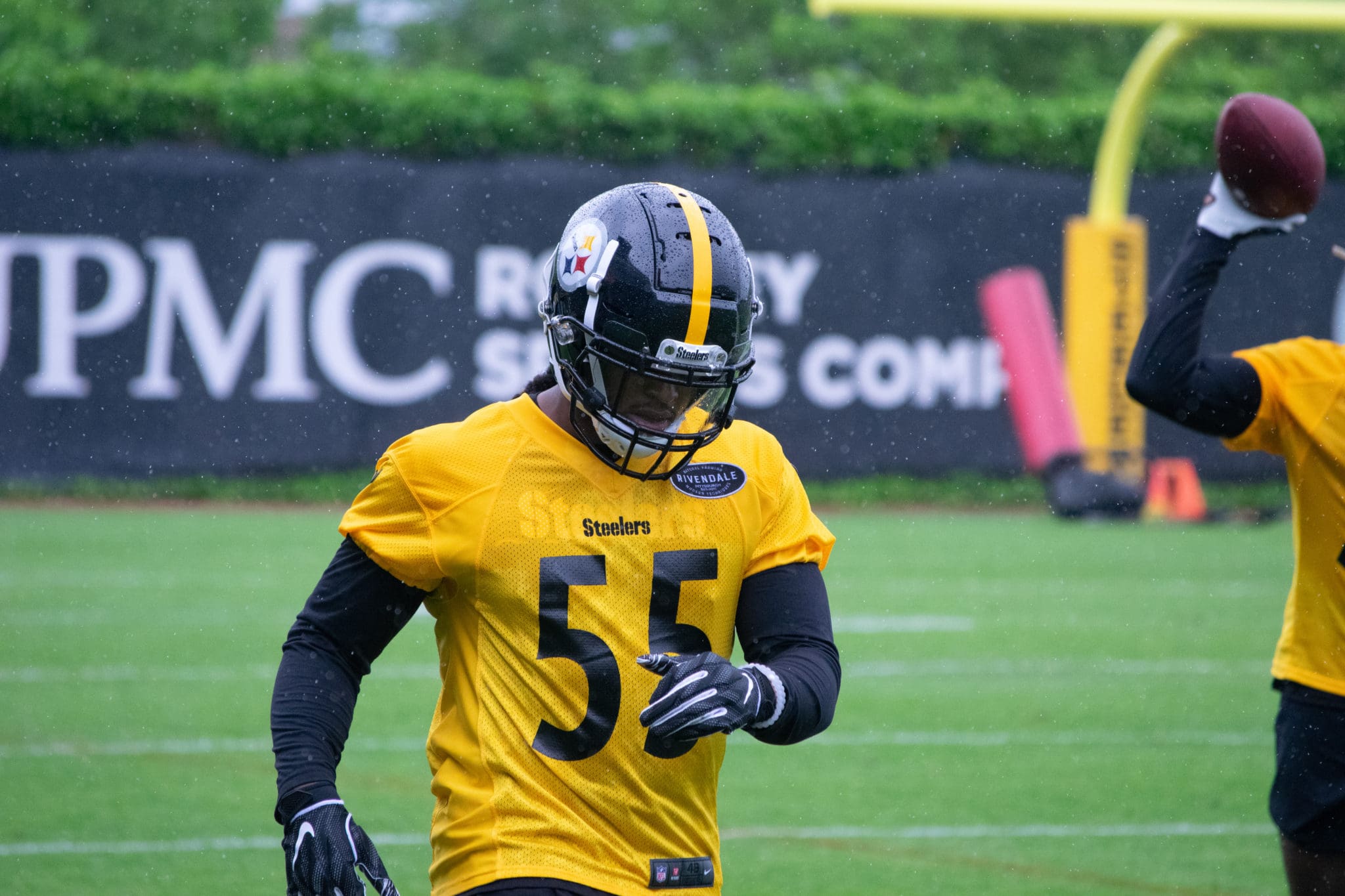Steelers Analysis
The Ripple Effect of Devin Bush Calling Plays

Devin Bush started off rookie minicamp with all of the praise and discussion that went along with him being a top-ten pick. His peers talked about the way he goes about his business, while the coaches and media raved about his ability to call plays, despite just being handed a playbook.
“Right or wrong, I was just being vocal and trusting what I see,” Bush said. “I’ve got quite a bit to learn. I just have to know how to speak the language of the defense and get caught up on all my plays. … I know concepts about the style of defense that we’re trying to run, I just have to learn the language.”
His proactive nature and instincts are what drew the Steelers to Bush, and while he even admitted to a mistake here and there, he wanted to set the tone and show that he had no issues being vocal and that with a few weeks learning this playbook, he will be calling out everything as expected.
The Steelers traded into the top 10 because they feel that Bush has the speed and athleticism to replace Ryan Shazier. However, for as big of a loss the speed was with Shazier, it was arguably just as devastating to lose their play caller, and a player who had no issue calling an audible and setting his defense up based on what he sees.
It may take Bush some time, but the team certainly sees Bush taking on that role as a play caller-something he did at Michigan-sooner than later.
Bush stepping into a role as a play caller with similar speed to Shazier goes a long way in the defense taking a step forward. However, it is the ripple effect of Bush sliding into that role that makes him so valuable.
Last season was the first season that Vince Williams was asked to call the plays. Williams went from a special teams player and sixth-round pick to the quarterback of the Steelers defense. It showed tremendous growth for Williams, and his performance against the New England Patriots, playing every snap, mostly as the only linebacker on the field while getting his team in-line to hold the Super Bowl Champions to 10 points was easily the highlight game of his career.
However, that came at the end of a challenging season which showed that Williams may be in a bit over his head with the extra responsibility.
After an 0-1-1 start to the season, defensive coordinator Keith Butler admitted that the defense was not being communicated effectively enough and needed to be simplified.
“I hope it’s simple enough for where they can run the defense and there wouldn’t be a problem,” said Butler before the Steelers Week 3 Monday Night win at Tampa Bay. “Not that we had a bunch of these in-game, but we did have some guys running free a couple times. You saw a guy go down the middle, that was a lack of communication on the field. We have to do a better job of that.”
While they did get better over the course of the season, a team that was allowing under 18 points per game with Shazier in the lineup, allowed over 22 points per game the following season. Below, you can see the differences between when Ryan Shazier was on the field calling plays in 2017, compared to Williams calling plays in 2018. The defense was worse in every facet of the game. The biggest difference came in the passing game.
| Ryan Shazier on field 2017 | Vince Williams on field 2018 | |
| Run Success rate | 41.0% | 44.6% |
| Pass Success rate | 46.8% | 55.2% |
| Explosive Run % | 5.0% | 5.4% |
| Explosive Pass % | 13.7% | 15.8% |
| Turnover % | 1.9% | 1.0% |
| Sack % | 9.9% | 8.5% |
| Yards Per Carry | 4.06 | 4.07 |
| Yards Per Pass Attempt | 7.35 | 8.12 |
*stats provided by The Quant Edge
While Williams still took strides as a player last season, taking the better version of Williams and putting him in a lesser role should help maximize his potential. Williams was always comfortable playing next to Shazier, let him make plays. If Bush can help now that Williams is a bit savvier himself, the duo could be better overall.
The Steelers also signed Mark Barron as their contingency plan in case a trade into the top ten not worked out. While Williams was taking strides replacing the mental side of Shazier, Barron was brought in to help replace some of what Shazier did in coverage.
As a former safety, Barron is a good bit faster than Williams and has always been a sound tackler who is average in coverage.
Now, with Bush in the mix, Barron goes from a player who was going to be asked to start to a specialty player, which is what Barron should be. On obvious passing downs, he can take Williams off the field while keeping two linebackers in the game, and he can provide a run-stuffing third safety in specific sub-package sets. It was clear last season that a starting role was a bit much for Barron, who lost snaps to Cory Littleton before being let go by the Rams. However, now Barron has the chance to be placed in a role that optimizes his skills.
If Bush can continue the groundwork that he laid in rookie minicamp and call plays, he will have helped upgrade three linebacker spots, all of which will play a role in the 2019 defense. Tracking how often Bush is calling plays, and in which situations will be important to watch. Once he masters those duties, the defense should be in great position moving forward.













